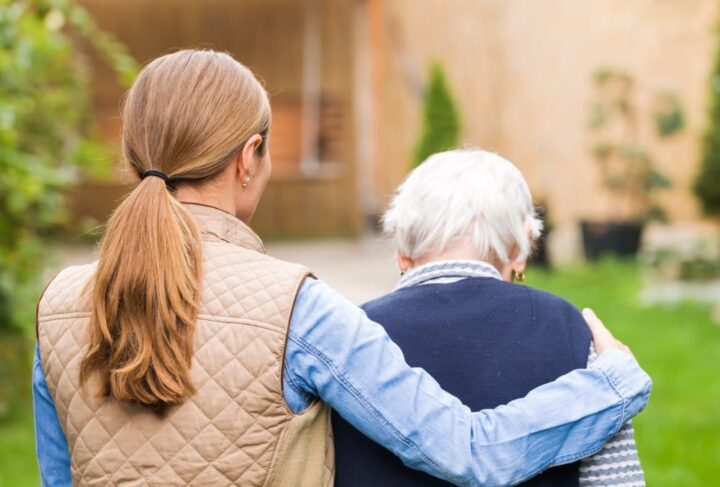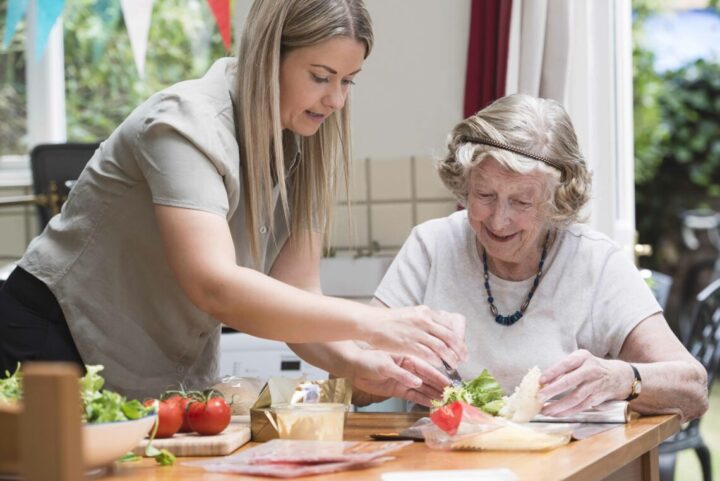Taking care of an elderly family member or loved one can be a challenging yet rewarding experience. From attending to basic needs such as providing meals and ensuring they take their medications to give emotional support and guidance, there is no limit to the care you may need to provide your elderly loved ones.
With such important work comes great responsibility, but with a few tips on caring for your elderly relative in mind, you can rest assured knowing that your loved one is receiving all the care and compassion they deserve.
In this article, we’ll discuss how you can provide quality care while also finding balance in taking time out for yourself. Let’s get started.
1. Choose the Right Nursing Home

If your loved one needs long-term care and you are considering a nursing home, it is essential to choose the right one. You will have to consider multiple factors while making the decision, for instance, the quality of care provided, the cost involved, the staff, and the location.
You must visit the nursing home in person to better understand its staff, cleanliness, and overall environment. It is important to ask plenty of relevant questions and ensure your selected nursing home meets all your requirements.
In recent years, the increasing number of nursing home abuse cases has raised concerns about how elderly patients are treated in some facilities. Therefore, you must take extra precautions to ensure your chosen nursing home is safe. Besides, even after thorough research, if your loved one becomes a victim of abuse in your chosen nursing home, don’t hesitate to file a nursing home lawsuit with the help of an attorney.
2. Assess Their Needs and Create a Care Plan
Assessing the needs of your elderly loved ones and creating a care plan is an essential step in providing effective care. It may involve conducting a thorough assessment of their abilities and limitations, as well as their living environment and support network. According to the National Institute on Aging, it is necessary to consider factors such as physical health, mental health, and social support when evaluating an older adult’s needs.
A care plan can include various services, such as home health aides, transportation to medical appointments, and assistance with daily activities. Additionally, involving other family members or friends in the care planning process may be helpful.
3. Encourage Physical and Mental Well-Being

If your elderly family member or loved one is in your care, it is important to ensure their physical and mental well-being. It can include helping them to participate in light exercises, engage in art or music classes, and maintain an active social life. Additionally, it is crucial to provide emotional support and companionship.
Mental health issues are common among older adults, and it is essential to take steps to prevent or reduce the risk of developing depression or anxiety. It may include regular visits to the doctor, taking prescribed medications as needed, and engaging in activities that allow them to stay connected with their peers.
Furthermore, it is important to provide a safe and comfortable living environment for your elderly loved one. It includes ensuring the home has adequate lighting and ventilation and providing accessible furniture and bathroom accessories.
4. Stay Up-to-Date on the Latest Technology
Staying informed about the latest technology is crucial to find solutions that can enhance the quality of life for your elderly family member. For instance, medical alert systems can now detect falls or other incidents and alert you immediately if your loved one needs help.
There are also a variety of apps and gadgets designed to assist with daily activities, such as medication reminders. Additionally, there are specialized devices for the visually impaired or hearing-impaired people. Utilizing these products can help your loved one maintain independence and safety while providing peace of mind.
However, it is important to ensure that your elderly family member understands how to use these products and is comfortable with their functions.
5. Help Them Eat Right

Eating right is an important part of staying healthy and preventing chronic illnesses in senior adults. It is essential to provide your elderly family members with nutritious, balanced meals that are easy to prepare. Additionally, it is necessary to provide healthy snacks throughout the day and limit sugary or processed foods.
Ensuring your elderly loved one receives proper nutrition can help them maintain their strength and overall health. It is also important to ensure they drink enough water, as dehydration is a common problem among older adults.
However, it is essential to be aware that some medications can affect appetite, so adjusting the diet or supplementing it with vitamins or other nutrients may be necessary.
6. Stay Organized and Communicate Effectively
When caring for an elderly relative or loved one, staying organized and communicating effectively is essential. Keeping track of appointments, medications, and other important information can be challenging, especially if multiple caregivers are involved.
An effective strategy is to create a central file or binder containing your loved one’s important documents and information. It may include medical records, insurance information, contact information of healthcare providers, and a list of medications and dosages. You can also use a calendar or planner to keep track of medication schedules, appointments, and other important dates.
Effective communication is also key to providing quality care. It may involve regular check-ins with your loved one to see how they are feeling and address any concerns or questions they may have.
7. Take Care of Yourself

Taking care of an elderly loved one can be draining and challenging. It’s essential to take care of your own needs in order to provide the best possible care. Take time for yourself, get enough rest, and stay physically active.
Additionally, joining a support group or talking with a counselor can help manage stress and maintain an emotional balance.
Many resources are available to assist with the care of elderly family members. You can find organizations that provide respite care or in-home services for your loved one. Also, programs and services are designed to make life easier for caregivers. Furthermore, remember to seek out help if needed.
Conclusion
Caring for your elderly loved ones can be complex and overwhelming. Even with some difficult adjustments, providing the best care and support is possible.
Be sure to rely on resources like family members, neighbors, and local organizations that specialize in senior services. Educating yourself will also help ensure you’re providing adequate care while honoring the interests and values of your elderly loved one.
Working towards a balance of dignity and care is essential as you find the right fit for both of you. Looking after an aging relative can come with challenges, but following these simple tips can provide your beloved senior with the safe and supportive environment they deserve.




